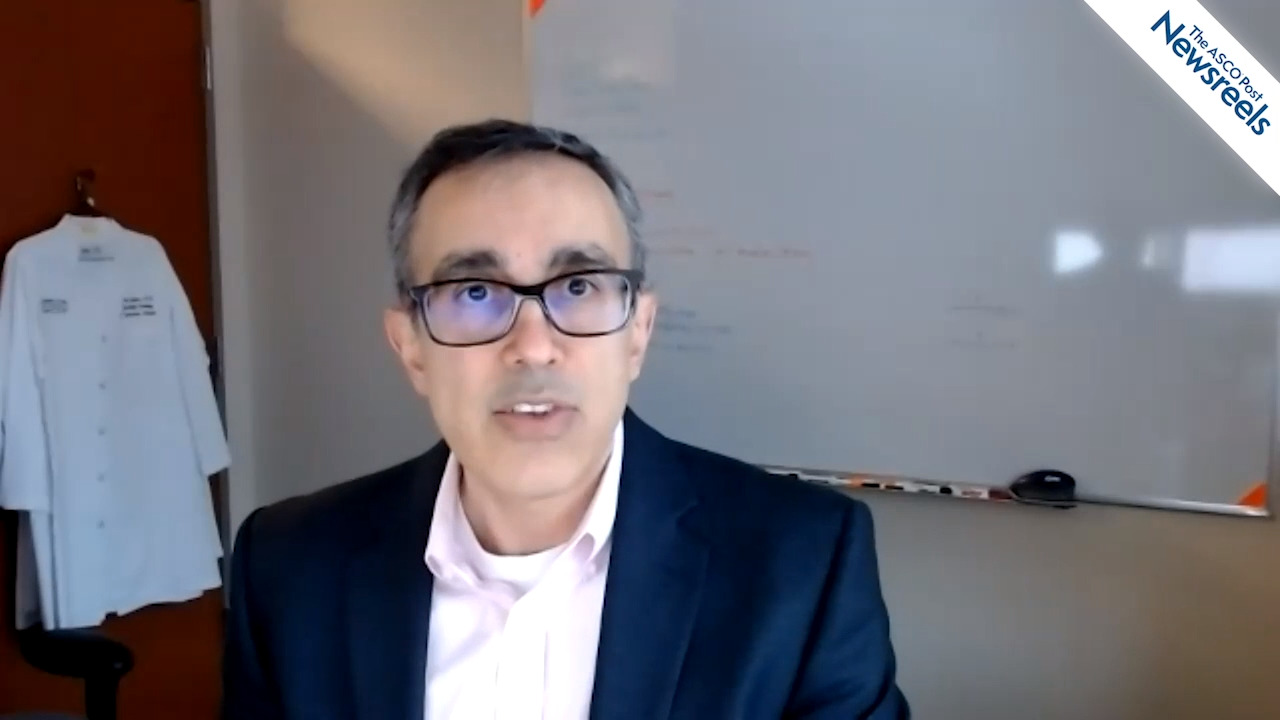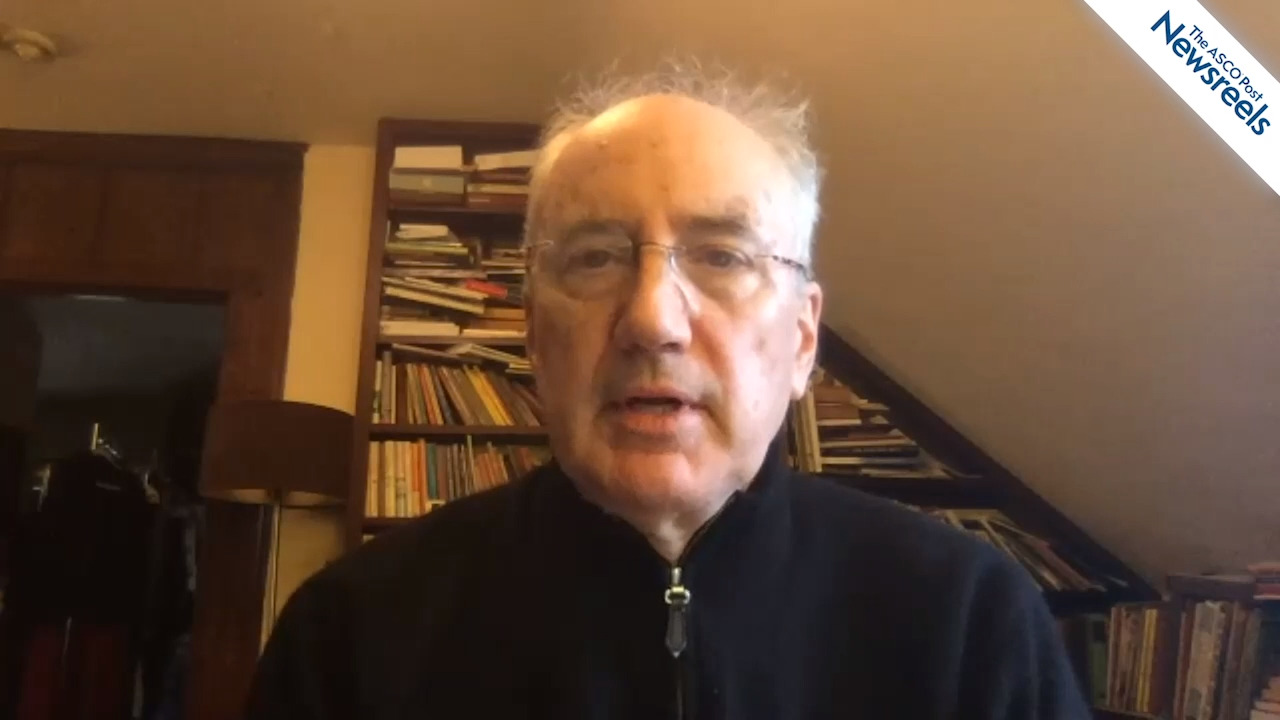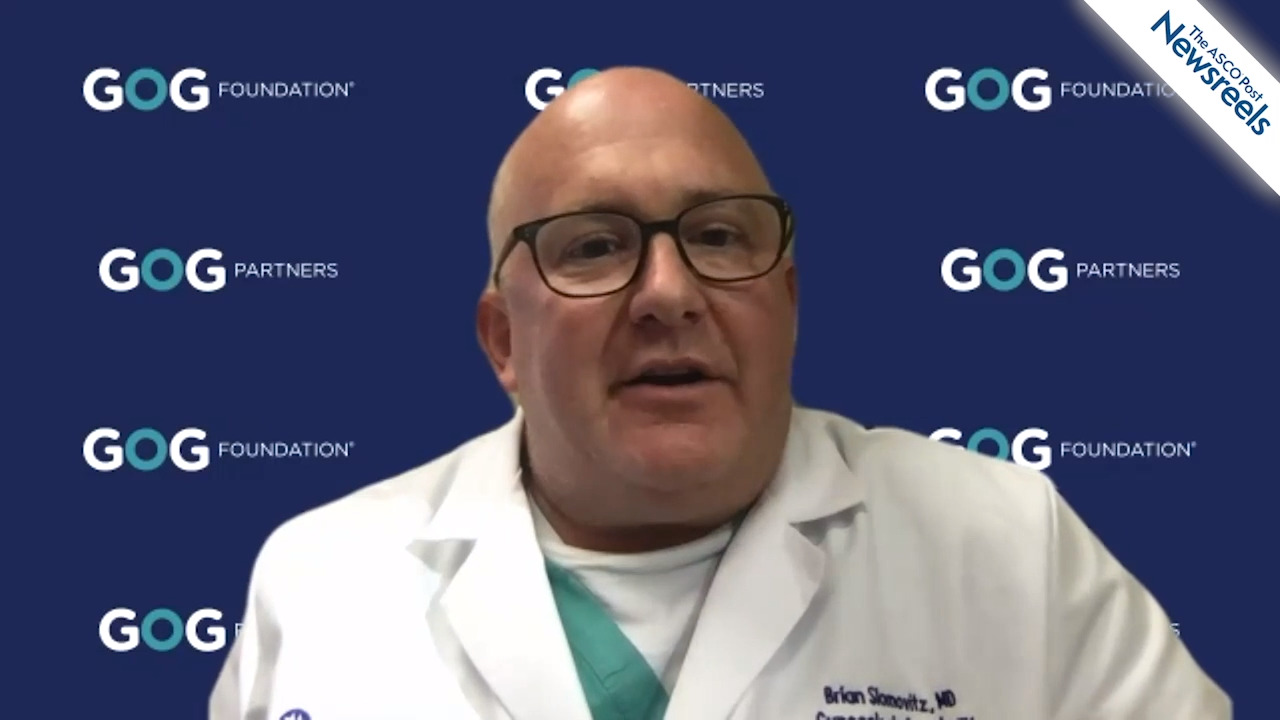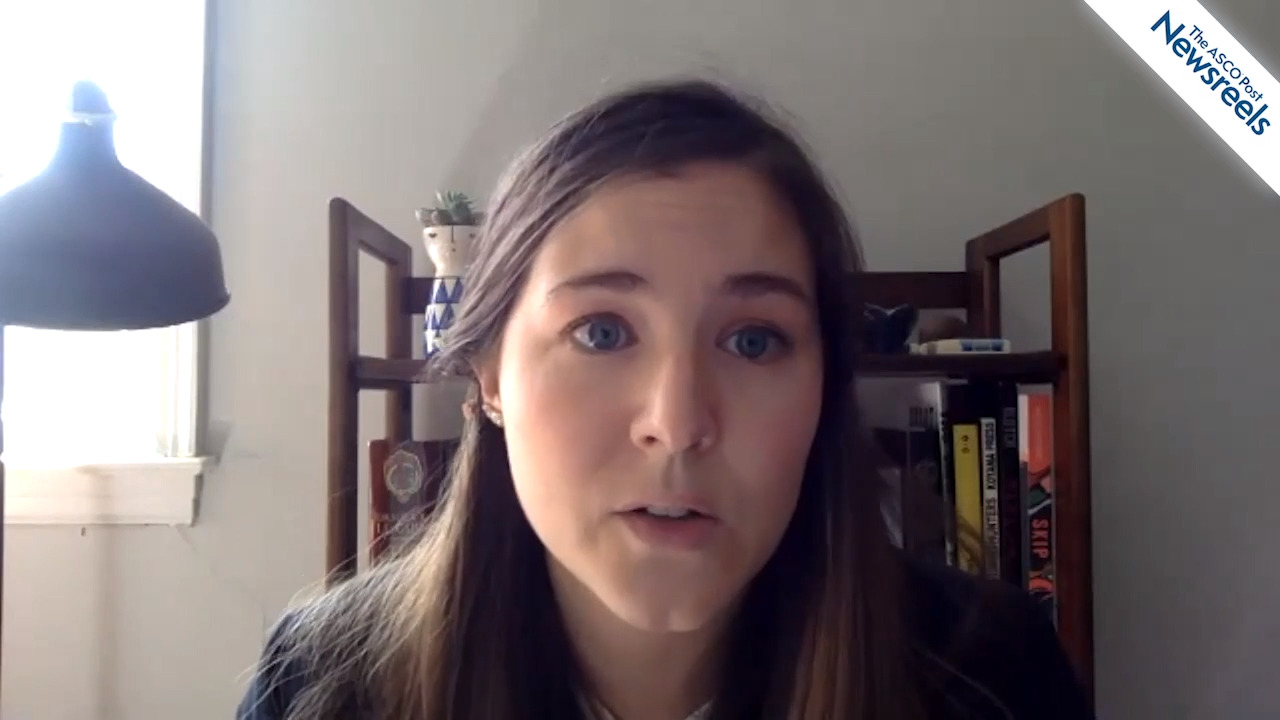Andreas Obermair, MD, on Treating Endometrial Adenocarcinoma With a Levonorgestrel Intrauterine Device
SGO 2021 Virtual Annual Meeting on Womens Cancer
Andreas Obermair, MD, of the University of Queensland and Queensland Centre for Gynaecological Cancer Research, discusses data on a hormonal IUD used to treat women with the precursor lesion endometrial hyperplasia with atypia (EHA) and those with stage I endometrial adenocarcinoma (EAC). At 6 months, the data showed a complete pathologic response in 82% of patients with EHA and in 43% of those with EAC (ID# 10244).
The ASCO Post Staff
Shannon N. Westin, MD, of The University of Texas MD Anderson Cancer Center, discusses phase II results from the ENPAC trial, which showed the combination of enzalutamide, paclitaxel, and carboplatin yielded promising clinical outcomes in chemotherapy-naive advanced or recurrent endometrioid cancer (ID # 10244).
The ASCO Post Staff
Amir A. Jazaeri, MD, of The University of Texas MD Anderson Cancer Center, discusses data on the safety and efficacy of adoptive cell transfer using autologous tumor-infiltrating lymphocytes (LN-145) to treat patients with recurrent, metastatic, or persistent cervical carcinoma whose tumors have progressed on prior systemic therapy (ID # 10224).
The ASCO Post Staff
Edward L. Trimble, MD, MPH, of the National Cancer Institute, discusses the World Health Organization’s global strategy to speed the elimination of cervical cancer through vaccination, screening, treatment, and training for multidisciplinary teams in gynecologic oncology care. This marks the first time that 194 countries have committed to such an effort (ID # 10203).
The ASCO Post Staff
Brian M. Slomovitz, MD, of Florida International University, describes how emphasizing diversity and shifting away from clinical trials at universities helped The GOG Foundation, Inc., increase patient accrual by 50% in 2020 (ID # 10215).
The ASCO Post Staff
Alice P. Barr, MD, of the Carolinas Medical Center and Levine Cancer Institute, discusses results from a retrospective study, which showed that progression-free and overall survival appeared to be no different with open surgery and minimally invasive surgery for interval debulking after neoadjuvant chemotherapy in women with advanced epithelial ovarian cancer. Perioperative outcomes also seemed to be superior with minimally invasive surgery (ID #10209).





